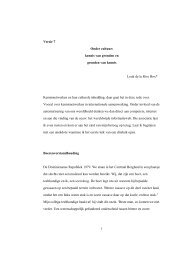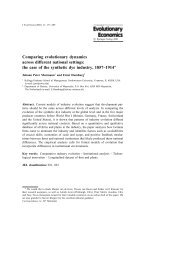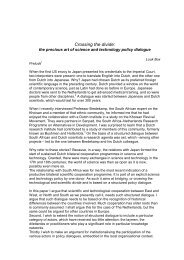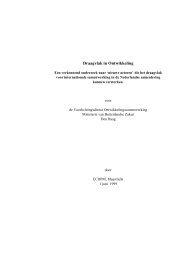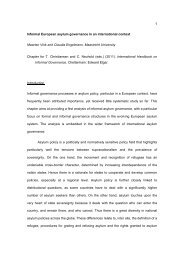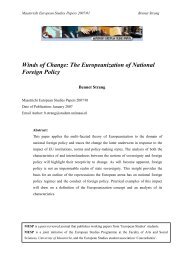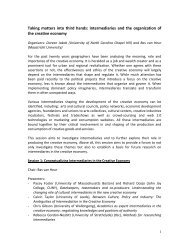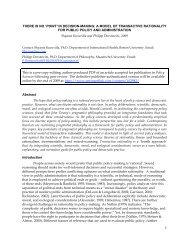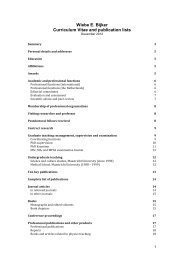Download paper - Maastricht University
Download paper - Maastricht University
Download paper - Maastricht University
You also want an ePaper? Increase the reach of your titles
YUMPU automatically turns print PDFs into web optimized ePapers that Google loves.
<strong>Maastricht</strong> European Studies Papers 2007/07 L. Unbehauen<br />
Neave is right to argue that the reform process has reached a crucial stage. In the last years<br />
even the sensitive question of QA has come to the fore and the call for a common European<br />
QA mechanism has caused heated discussions. However, the success of this next reform<br />
phase and of the Bologna reform as such will depend mainly on the implementation of the<br />
whole reform package; implementation not only meaning a change to appropriate national<br />
legislation but also to actual practices at Europe’s HEIs. Unfortunately the findings of the<br />
Trend IV analysis have revealed that much remains to be done, even in such basic action<br />
fields as convergence of degree structure and recognition.<br />
Yet, the Trend IV report has also identified certain factors which can help the reform<br />
on its road to success. The first success factor is the positive perception of the aims and added<br />
value of the Bologna Process among HEIs across Europe. In other words, if the “top down<br />
agenda [is transformed] into their own bottom-up interpretation of desirable change”<br />
(Reichert & Tauch, 2005, p. 42), the reform will run more smoothly. Second, good<br />
communication within the institutions and a pro-active leadership can foster better<br />
cooperation and flawless implementation of the reform (ibid.). Thirdly, the right “balance<br />
between national level regulation and coordination and institutional autonomy” (p. 44) is<br />
needed to guide but not over-regulate the HEIs in their reform progress. National qualification<br />
frameworks should give incentives for action without prescribing too many rules on, for<br />
example, the language of instruction or accreditation of programs. The fourth reason for<br />
success is to allow the institution enough time to adjust instead of rushing them through half-<br />
cooked reforms (p. 46). It has proven that countries such as the Netherlands which started the<br />
implementation early could report the most thorough reform results (p. 45). Last but not least,<br />
not only rhetoric commitment but increased national funding is necessary. Until now most of<br />
the Bologna reforms and the associated higher administrative and staff costs had to be paid<br />
out of the limited pot of Europe’s HEI, leaving less resources for other fields such as research<br />
or intensive student counseling.<br />
If all these factors will be considered and incorporated into the reform strategy it might<br />
be possible to speed up the Bologna Process and make it a real success, which until now has<br />
been hindered by the selective and incoherent implementation of reforms among the<br />
participating members.<br />
18



